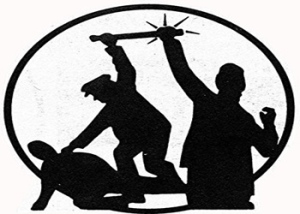Yep…I heard it again! While listening to a news segment talking about a town meeting with residents of Ferguson, MO and how they proceed from the tragedy of the shooting of Mike Brown, Jr. I heard one of the White residents say that her son was friends with a young Black man and “she had no idea” that the young man’s mother gave him specific instructions about how to conduct himself when he rode his bike over to visit her home. “When my son goes out to ride his bike I admonition him to watch out for traffic. I didn’t know his friend’s mother talks to him about how to respond to police and White people he might encounter… I had no idea!
I heard this same phrase after the shooting death of Trayvon Martin when Black parents were interviewed and explained how they instructed their children, especially their sons, about how to respond if they are stopped by police officers. I can appreciate the veracity of their statement–“I had no idea”– but I do wonder where on earth they have been all of this time to have no idea how dangerous it is for Black people to encounter Whites–whether police officers or citizens–in environments where Whites wield authority like roads, streets, or predominately White neighborhoods.
Twenty-five or so years ago when the world witnessed the Rodney King beating I heard White students say they had “no idea” that Blacks were subject to ongoing police brutality. Thirty years ago when I was raising my own sons in the Palo Alto, CA area we were explicit in telling them where to go and how to respond if they were stopped by police while riding their bikes and later while riding in cars with their friends. My White neighbors and friends claimed to have “no idea!”
Almost 60 years ago when Emmitt Till was brutally murdered, his body mutilated, and his killers exonerated in less than an hour, there were northern Whites who “had not idea.” Last year when director Steve McQueen brought Solomon Northrup’s story of being sold into slavery to the big screen and revealed aspects of how horrific American slavery was I heard White friends and colleagues declare they “had no idea.”
Is having “no idea” an excuse for permitting injustice to continue? Whose responsibility is it to educate people with “no idea” about the realities of life for people who live their American lives inside a darker skin? Once you have learned of an Amadou Diallo, Sean Bell, Oscar Grant, Trayvon Martin, Jordan Davis, Eric Garner, and Mike Brown, Jr. what is your responsibility to teach others about what happened? How can we permit school districts to ban the teaching of the Ferguson incident when we know we will raise yet another generation of uniformed, naive White students who will grow up to say yet again, “I had no idea?” What do you think we should be doing? How can we break this cycle of ignorance and help the entire community become more aware of the terror that awaits some people just for being who they are? Tell us what you think!
Stay Black & Smart!









